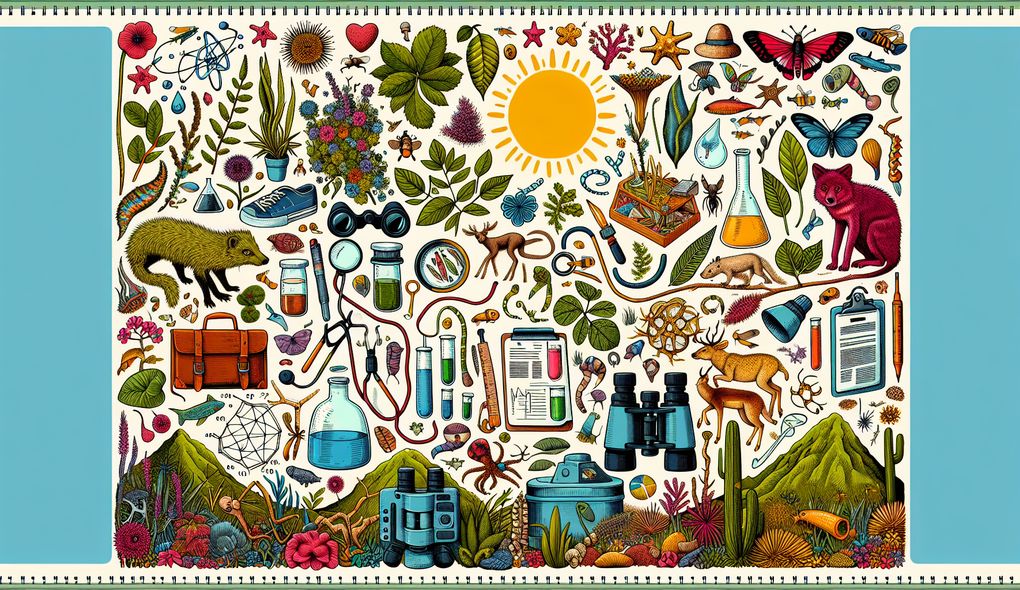Describe your experience with conducting field research and collecting data on wildlife and ecosystems.
INTERMEDIATE LEVEL

Sample answer to the question:
I have some experience conducting field research and collecting data on wildlife and ecosystems. In my previous role, I was part of a team that conducted surveys to monitor bird populations in a local wetland area. We used binoculars and cameras to observe and document different bird species. I also helped set up and maintain wildlife monitoring equipment, such as camera traps and GPS trackers. Additionally, I collected and analyzed data on habitat characteristics and species abundance using statistical software. Overall, I have gained a good understanding of field research techniques and data collection methods.
Here is a more solid answer:
I have extensive experience conducting field research and collecting data on wildlife and ecosystems. In my previous role as a Conservation Biologist, I led several research projects focused on biodiversity conservation. One notable project involved studying the population dynamics of a rare butterfly species. I designed and implemented a comprehensive field survey, which included capturing and tagging individual butterflies, collecting data on their behavior and habitat preferences, and analyzing the collected data using advanced statistical techniques. Additionally, I have experience working with advanced technology such as remote sensing tools and GIS to map and monitor ecosystems. This combination of fieldwork and data analysis skills allows me to effectively contribute to conservation efforts.
Why is this a more solid answer?
The solid answer provides more specific details about the candidate's experience with conducting field research and collecting data on wildlife and ecosystems. It demonstrates their ability to design and implement comprehensive research projects, use advanced statistical techniques for data analysis, and work with advanced technology such as remote sensing tools and GIS. However, it could still be improved by addressing the remaining skills mentioned in the job description, such as effective communication and interpersonal abilities.
An example of a exceptional answer:
Throughout my career, I have been deeply involved in conducting field research and collecting data on wildlife and ecosystems. I have led numerous research expeditions to remote and challenging environments, such as tropical rainforests and arctic tundra. One notable project I worked on involved studying the migration patterns of marine mammals in the Arctic. I successfully deployed satellite tags on several individuals, allowing us to track their movements and gather valuable data on their habitat use and migration routes. I have also collaborated closely with local communities and indigenous groups to ensure the ethical and sustainable conduct of research activities. My strong analytical skills have enabled me to analyze complex datasets and identify key patterns and trends, contributing to the development of effective conservation strategies. Furthermore, I have presented my findings at international conferences and published several research papers in reputable scientific journals. Overall, my diverse experiences and passion for wildlife and ecosystems make me well-suited for this role.
Why is this an exceptional answer?
The exceptional answer goes above and beyond by highlighting the candidate's extensive and diverse experiences with conducting field research and collecting data on wildlife and ecosystems. It demonstrates their ability to work in challenging environments, utilize advanced research techniques such as satellite tracking, collaborate effectively with local communities, and contribute to scientific knowledge through presentations and publications. This level of experience and expertise aligns perfectly with the requirements of the Conservation Biologist role.
How to prepare for this question:
- Brush up on field research techniques, including survey design, data collection, and sample processing.
- Familiarize yourself with advanced statistical techniques and data analysis tools commonly used in conservation biology.
- Stay updated with the latest advancements in remote sensing technology and GIS applications in ecosystem monitoring.
- Develop effective communication and interpersonal skills, as they are essential for collaborating with stakeholders and presenting research findings.
- Read scientific papers and publications related to wildlife management and conservation strategies to enhance your knowledge in the field.
What are interviewers evaluating with this question?
- Field research techniques
- Data collection methods

